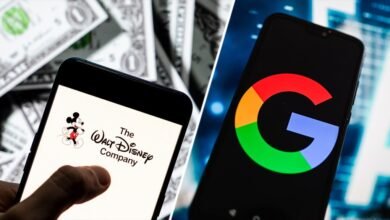Disney, Universal Sue Midjourney Over AI Copyright Violations

▼ Summary
– Disney and Universal sued Midjourney, accusing it of generating unauthorized copies of their intellectual property, marking the first major Hollywood studios to take legal action against an AI company.
– The lawsuit includes examples like AI-generated images of Yoda and “The Boss Baby,” claiming Midjourney’s outputs closely resemble copyrighted characters without transformation.
– Legal experts argue Midjourney may struggle with a “fair use” defense, as Disney’s case focuses on direct output replication rather than just training data.
– The complaint alleges Midjourney ignored demands to prevent infringing outputs and copied Disney/Universal works during training, creating additional unauthorized copies.
– Midjourney trained its AI by scraping internet images without licensing, with its CEO admitting the lack of copyright metadata makes tracking ownership difficult.
Disney and Universal have launched legal action against AI firm Midjourney, accusing the company of systematically violating copyright laws by generating unauthorized copies of their intellectual property. This marks the first major lawsuit from Hollywood studios targeting artificial intelligence image generation, adding fuel to an already heated debate about AI’s relationship with copyrighted material.
The complaint presents multiple examples where Midjourney allegedly reproduced recognizable characters from Disney and Universal franchises. One such instance involves an AI-generated image of Yoda from Star Wars, created simply by inputting the prompt “Yoda with lightsaber, IMAX.” Another example shows a character strikingly similar to Universal’s Boss Baby, generated after typing the film’s title into Midjourney’s system.
Legal experts suggest this case could set a crucial precedent. Chad Hummel, an intellectual property attorney, notes that the lawsuit presents a strong argument against Midjourney’s claim of “fair use,” a defense often relied upon by AI companies. Courts typically assess whether AI-generated content adds new meaning or transforms the original work—something Hummel believes is lacking here.
Matthew Sag, a law professor specializing in AI, argues that Midjourney faces an uphill battle. Unlike previous cases where AI firms were accused of improper training data usage, Disney and Universal are directly challenging the output. “When the model produces near-identical copies of protected characters, it’s hard to argue transformation,” Sag explains.
The lawsuit further alleges that Midjourney ignored requests to implement safeguards preventing copyright infringement. It also claims the company made additional copies of Disney and Universal’s works during training—a process the studios describe as systematic piracy.
Disney’s chief legal officer, Horacio Gutierrez, emphasized that while the company supports AI innovation, it won’t tolerate unauthorized use of its properties. “Piracy remains piracy, regardless of whether it’s carried out by an AI company,” he stated.
Midjourney, like many AI startups, trained its models by scraping publicly available images without explicit licensing. In a past interview, CEO David Holz acknowledged the challenges of tracking image origins, citing the lack of standardized copyright metadata. However, this admission may now work against the company in court.
As the legal battle unfolds, the outcome could reshape how AI developers handle copyrighted material—potentially forcing stricter compliance measures across the industry.
(Source: Wired)





